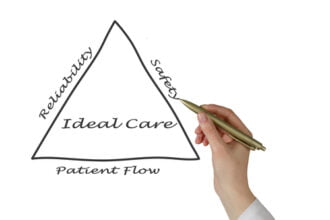What is sciatica and how to recognize it?
The sciatic nerve is the longest nerve in the body and provides motor control, stretching from the lower back, down both legs and all the way to the feet. Sciatica is a type of back pain which is caused by injuring the sciatic nerve. Even though most people tend to confuse it with regular back pain, it’s actually a specific condition which needs to be treated properly. You might be suffering from sciatica if you have these symptoms:
- shooting lower back pain which extends to one leg
- weakness or numbness in one leg
- a tingling or burning sensation in one leg
It’s important to remember that not all back pain is a result of sciatica. But if you feel that the pain emanating from your back is going down one of your legs or to your feet, then it is probably sciatica. It is important to know that most people describe this pain as a leg cramp which lasts for a couple of days.
What causes sciatica?
Sciatica is most often caused by a herniated lumbar disk. These disks are located between your spine’s vertebrae and act as cushions. As a person ages, the disks become weaker and more likely to sustain an injury. This condition could also occur as a consequence of spinal stenosis (the narrowing of the spinal canal) or pelvic fracture.
Who is most likely to suffer from sciatica?
The risk of getting sciatica is higher for people between 30 and 50 years of age. Another group of people who are at higher risk are overweight people and pregnant women. This is because people who carry extra weight put more pressure on their spine, and thus they are much more likely to injure it. However, even though these people are at higher risk, anyone could suffer from sciatica. For instance, people who sit for long periods of time are very likely to injure their spine which causes compression to the spinal discs. Not only that, but people who sleep in uncomfortable beds are also more prone to sciatica. Sleeping in a bed which is too soft or too hard can do a lot of harm to the sciatic nerve.
When to visit a doctor
If you believe your back pain is caused by sciatica, you should go to a medical professional. In order to determine if your sciatic nerve is irritated, a doctor will perform a series of muscle tests. They will probably ask you to walk on your heels or toes, squat, or raise your legs. After the examination, the doctor will be able to tell if and which part of the sciatic nerve you have injured. If these tests aren’t conclusive enough, your doctor will probably need to conduct further tests. These could include an MRI or a CT scan, the goal of which is to locate the irritated nerve and reveal what caused it. An X-ray is also an option, but it could only show problems caused to the bone, and not to the nerve.
How to treat sciatica
There are a number of various treatments that a person who suffers from sciatica could go through. They vary depending on the cause and seriousness of the condition. It is best to talk to your physician about the best treatment for you. Some common methods include:
- Applying ice or heat to the injured area. This is a technique most people use when dealing with any type of back pain. You might need to experiment and see whether an ice or heat pack work better for you. Every two hours, apply the ice or heat to the injured area for 20 minutes until the pain subsides.
- Bed rest. Lying in a comfortable bed with a supportive mattress is how most cases of sciatica are treated. This is the most appropriate treatment if the condition isn’t too serious, and it usually lasts for a few days.
- A physical therapist could recommend treatment using a mixture of strengthening, stretching and low-back conditioning exercises. This could help speed up the treatment process and recovery.
- If you’re looking for short-term relief from sciatica, you can take any over-the-counter pain relievers such as naproxen, aspirin, and ibuprofen. If there is a need for stronger medication, your doctor could prescribe anti-inflammatories or muscle relaxants.
- Surgery. This is most often the last resort in the case a patient doesn’t see results from any treatment methods mentioned above. The surgical intervention is usually performed if the sciatica was caused by a herniated disc or spinal stenosis.
How to avoid sciatica in the future
If a person has had sciatica, the chances of suffering from it again are rather high. To avoid this, make sure you’re exercising regularly, maintaining good posture, and avoiding prolonged sitting. By taking these steps, you can help avoid any type of back injury in the future.  Source: Online Mattress Review
Source: Online Mattress Review








